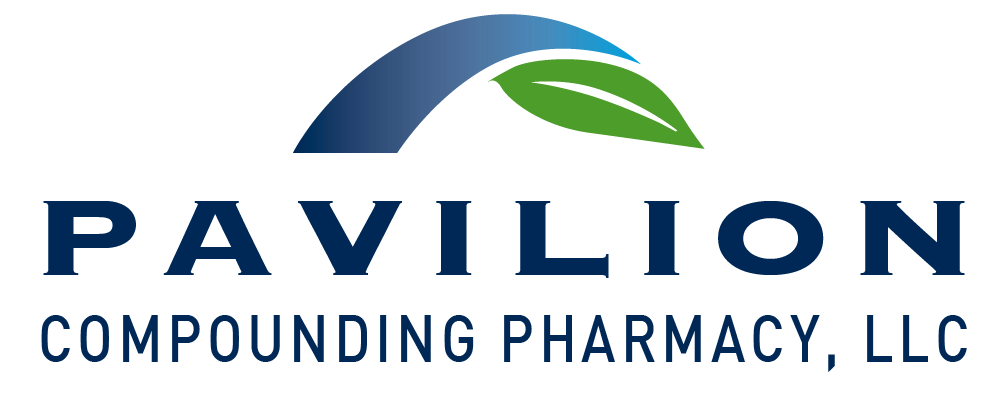Share This Product
Product Details
Ortho Biotic is a unique probiotic formula designed to deliver active organisms shown to promote healthy gut microflora, protect intestinal integrity and boost immune
function. Included in this formula is Saccharomyces boulardii, an extensively researched microorganism shown to help restore microflora balance by enhancing commensal organism function. Each Ortho Biotic capsule provides seven proven probiotic strains chosen for their ability to withstand the harsh gastrointestinal (GI) environment and adhere to the intestinal tract to deliver superior results.
Overview
The GI tract is a finely balanced environment where roughly 500 different strains of bacteria compete for space and nutrients. When there is a healthy balance (eubiosis), few symptoms exist. However, dysbiosis can occur when an overabundance of potentially harmful organisms prevail. The natural microflora balance can be upset by medications (such as antibiotics, oral contraceptives, etc.), excessive alcohol consumption, or poor dietary intake.
Probiotics have been extensively studied and are characterized as having broad GI and immune benefits, including (1) increasing the population of healthy bacteria following microflora imbalance; (2) supporting healthy bowel function; (3) increasing the production of short-chain fatty acids, which provide energy to the cells of the intestinal lining; (4) strengthening the gut-immune barrier by promoting a healthy gut mucosa; (5) aiding in the digestion of difficult-tobreakdown compounds like lactose and casein; and (6) enhancing detoxification of harmful compounds. Because probiotics are live organisms, there are many challenges associated with manufacturing and distributing probiotic supplements. For a probiotic to be effective, it must be shelf-stable through the expiration date and precisely delivered to the intestinal tract, where it can have maximum benefit. BioShield® technology is an innovative manufacturing process developed to ensure consistent and reliable results. The microorganisms in Ortho Biotic are protected, sealed and freeze dried away from moisture, heat, light and oxygen. This allows the bacteria to remain dormant until they are exposed to moisture in the GI tract. By utilizing advanced encapsulation technology, the probiotic organisms are preserved and released on-target for maximum benefit.
Lactobacillus acidophilus (La-14† Lactobacillus acidophilus is a beneficial bacterial strain that is normally found in the intestinal tract and mouth and is commercially used in dairy products for the production of acidophilus-type yogurt. L. acidophilus ferments various carbohydrates to produce lactic acid, which increases the absorption and bioavailability of minerals. This includes calcium, copper, magnesium and manganese. The production of lactic acid also promotes health by creating an inhospitable environment for invading microbes.1 L. acidophilus has been shown to protect intestinal cells by competing for adhesion space in the gut against harmful bacteria, such as E. coli. The L. acidophilus strain in Ortho Biotic has been specifically chosen because of its strong adherence and survival attributes in the GI tract. It has been demonstrated in vitro to tolerate exposure to gastric acid and bile salts, and has the ability to withstand antibiotics including Ciproflaxin, Polymyxin B and Tetracycline.2 Lactobacillus paracasei (Lpc-37)† Lactobacillus paracasei has been shown to protect against the harmful effects of bacteria such as Staphylococcus aureus (S. aureus).3 L. paracasei colonizes the intestinal tract by reinforcing defense mechanisms that support an immune response. It does this by supporting T-helper cell production and secreting secretory IgA (sIgA), an antibody critical for supporting intestinal immunity.4
L. paracasei Lpc-37 is a gastric acid-resistant strain and has been shown in vitro to withstand antibiotics such as Ciproflaxin and Vancomycin.5 Bifidobacterium bifidum (Bb-06)† Bifidobacterium bifidum has been shown to effectively compete with harmful bacteria such as E. coli, S. aureus and Camplylobacter jejuni, which suggests B. bifidum’s lactic acid and acetic acid production provides an antagonistic action against pathogens to help maintain microflora balance.6
Bifidobacterium lactis (BI-04)†
Bifidobacterium lactis is predominantly found in the colon. A double-blind, randomized placebo-controlled trial on subjects receiving B. lactis or placebo for eight weeks found that B. lactis supported a balanced immune response in individuals hypersensitive to environmental allergens.7 Studies examining immune development and dietary supplementation with B. lactis have shown that it supports GI health by reducing intestinal permeability.8
Lactobacillus plantarum (Lp-115)†
Lactobacillus plantarum is a beneficial bacteria commonly found in fermented foods including sauerkraut, pickles, brined olives and sourdough. L. plantarum has been found to compete against strains of Clostridium difficile and Clostridium perfringens, due to the production of bacteriocins (lethal proteins) that inhibit bacterial growth.9 Studies have also demonstrated that L. plantarum helps boost the immune response by stimulating Th1-mediated immunity.10
Lactobacillus rhamnosus (Lr-32)†
Lactobacillus rhamnosus has been proven to have remarkable survivability in the acid and bile environments in the GI tract. L. rhamnosus is particularly useful because of its ability to adhere to cells, enhance microflora balance, and inhibit pathogen adherence. L. rhamnosus was also found to positively affect inflammatory and immune gene signaling of over 1,700 genes when administered in high doses.10
Saccharomyces boulardii†
Saccharomyces boulardii is a probiotic yeast that was first isolated from the skin of the tropical fruits lychee and mangosteen in 1923 by French scientist Henri Boulard, following the observation that mangosteen consumption controlled occasional diarrhea in natives of Southeast Asia. S. boulardii plays a role in supporting immune defense by increasing levels of sIgA, creating a first line of defense that helps bind and clear harmful bacteria.11
Directions
1 capsule per day or as recommended by your health care professional.
Does Not Contain Wheat, gluten, soy, corn, animal or dairy products, fish, shellfish, peanuts, tree nuts, egg, artificial colors, artificial sweeteners or preservatives.
Cautions If you are pregnant or nursing, consult your physician before taking this product.
References
1. Lipski E. Digestive Wellness. New Canaan (CT): Keats
Publishing; 1996. p. 60-61.
2. Danisco. Lactobacillus acidophilus La-14 probiotic
identity card.
3. Bendali F, Madi N, Sadoun D. Beneficial effects of a strain
of Lactobacillus paracasei subsp. paracasei in Staphylococcus
aureus-induced intestinal and colonic injury. Int J Infect
Dis. 2011 Nov;15(11):e787-94.
4. Chiang SS, Pan TM. Beneficial effects of Lactobacillus
paracasei subsp. paracasei NTU 101 and its fermented
products. Appl Microbiol Biotechno. 2012 Feb;93(3):903-
16.
5. Danisco. Lactobacillus paracasei Lpc-37 probiotic
identity card.
6. Singh A, Hacini-Rachinel F, Gosoniu ML, Bourdeau T,
Holvoet S, Doucet-Ladeveze R, Beaumont M, Mercenier
A, Nutten S. Immune-modulatory effect of probiotic
Bifidobacterium lactis NCC2818 in individuals suffering
from seasonal allergic rhinitis to grass pollen: an
exploratory, randomized, placebo-controlled clinical trial.
Eur J Clin Nut. 2013 Feb;67(2):161-7.
7. Lewis MC, Patel DV, Fowler J, Duncker S, Zuercher AW,
Mercenier A, Bailey M. Dietary supplementation with
Bifidobacterium lactis NCC2818 from weaning reduces
local immunoglobulin production in lymphoid-associated
tissues but increases systemic antibodies in healthy
neonates. Br J Nutr. 2013 Oct;110(7):1243-52.
8. Schoster A, Kokotovic B, Permin A, Pedersen PD, Bello FD,
Guarabassi L. In vitro inhibition of Clostridium difficile and
Clostridium perfringens by commercial probiotic strains.
Anaerobe. 2013 Apr; 20:36-41.
9. Chytilová M, Mudroňová D, Nemcová R, Gancarčíková S,
Buleca V, Koščová J, Tkáčiková L. Anti-inflammatory
and immunoregulatory effects of flax-seed oil and
Lactobacillus plantarum – Biocenol™ LP96 in gnotobiotic
pigs challenged with enterotoxigenic Escherichia coli. Res
Vet Sci. 2013 Aug;95(1):103-9.
10. Evard B, Coudeyras S, Dosgilbert A, Charbonnel N, Alamé
J, Tridon A, Forestier C. Dose-dependent
immunomodulation of human dendritic cells by the
probiotic Lactobacillus rhamnosus Lcr35. PLoS ONE. 2011
Apr 18;6(4):e18735.
11. Rodrigues AC, Cara DC, Fretez SH, Cunha FQ, Vieira EC,
Nicoli JR, Vieira LQ. Saccharomyces boulardii stimulates
sIgA production and the phagocytic system of gnotobiotic
mice. J Appl Microbiol. 2000 Sep;89(3):404-14.
These statements have not been evaluated by the Food and Drug Administration. This product is not intended to diagnose, treat, cure, or prevent any disease.


